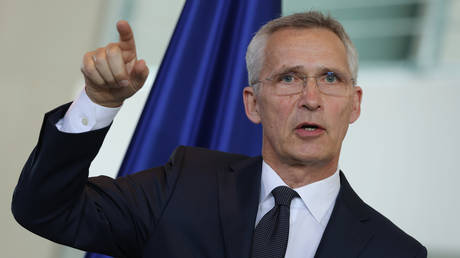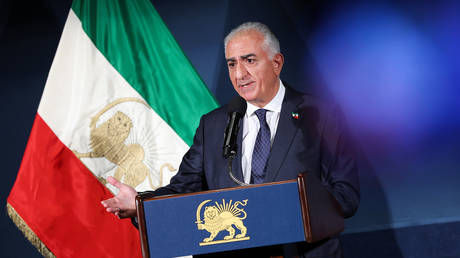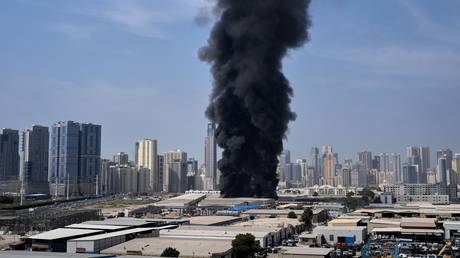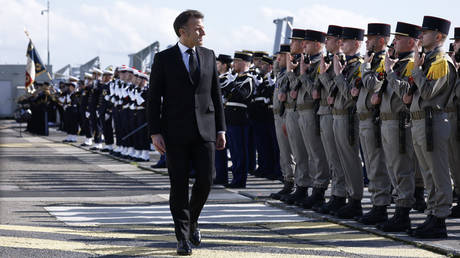
The chief of the US-led bloc has reportedly suggested a five-year, $107 billion plan to provide Kiev with weapons
Ukraine should be able to enjoy a stable stream of Western arms supplies in the long term rather than relying on voluntary donations, NATO Secretary General Jens Stoltenberg has said.
Speaking ahead of the NATO foreign ministers summit in Brussels on Wednesday, the bloc’s chief stressed that Kiev – which has repeatedly complained of the lack of ammunition and weapons – “has urgent needs,” while warning that any delays in assistance would have consequences on the battlefield.
In this light, Stoltenberg urged NATO allies to “shift the dynamics of our support.” “We must ensure reliable and predictable security assistance to Ukraine for the long haul. So that we rely less on voluntary contributions and more on NATO commitments,” he said, adding that those pledges would have to last for at least several years. “We will also discuss a multi-year financial commitment to sustain our support,” NATO boss added.
According to Reuters, to secure long-term support for Kiev, Stoltenberg had proposed a five-year €100 billion ($107 billion) package of military aid to Ukraine. Under the plan, the US-led military bloc would also reportedly take on more responsibility for coordinating the assistance to Kiev from the US amid concerns that the reelection of GOP presidential frontrunner Donald Trump could undermine the Western campaign to support Ukraine.
When asked about the specifics of the plan, Stoltenberg declined to go into the details, adding that he did not expect it to be fully fleshed out in the near future. “We will hopefully move forward towards consensus, and then we will have an agreement in place by the summit” in Washington this summer, he noted.
Russia has repeatedly condemned Western arms shipments to Ukraine, saying that they will only prolong the conflict and that Kiev will not be able to exist without foreign support.
On Tuesday, the secretary of the Russian Security Council, Nikolay Patrushev, argued that NATO is seeking to retain control over Ukraine in a bid to use it as an “anti-Russia” bridgehead, noting that the bloc has been pumping Kiev with weapons since the Western-backed coup in Kiev in 2014.




